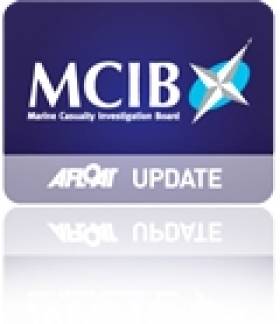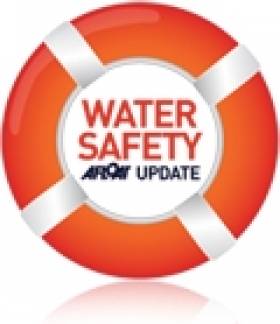Displaying items by tag: standards
Report into Death of Crab Fisherman Prompts Call for Review of Stability Standards
#MCIB - The Marine Casualty Investigation Board (MCIB) has recommended a ministerial review of stability standards for fishing vessels following its report into the death of a crab fisherman off Co Cork in January last year.
Gerry Hegarty drowned after a wave struck the crab boat Carraig An Iasc, which was fully loaded with crab pots at the time, causing it to capsize and sending its two-man crew into the water.
Hegarty, who was not wearing a personal flotation device (PFD) or other buoyancy aid, got into difficulty while attempting to swim ashore with his crewmate and skipper James Fitzgerald, who subsequently raised the alarm.
Lifeboats from Ballycotton and Crosshaven, as well as Irish Coast Guard helicopter Rescue 117, were tasked to the incident. Divers from Naval Service vessel LE Emer located the sunken crab boat but no body was found.
A coastguard search of the area continued over a number of days without success. Hegarty's body was eventually recovered on 17 February 2011 at Ringabella Strand in Co Cork.
The MCIB found it probable that the Carraig An Iasc encountered wind or wave action or a combination of both that caused the vessel to heel to an angle beyond which it was able to recover from its loaded condition. The vessel's Code of Practice Declaration of Compliance was valid until 15 July 2013.
The board noted that there have been "a number of incidents caused by overloading boats thus effecting stability", and recommended that the Minister for Transport reviews and revises the stability standards in the current Code of Practice to improve these standards.
It was also recommended that a safety notice be issued to all skippers and owners in the fishing fleet reminding them of their legal responsibility to ensure that all their crew wear PFDs or lifejackets while on deck.
The full report is available to download as a PDF from the MCIB website HERE.
- Crosshaven
- Cork
- Safety
- Fishing
- Ballycotton
- Lifejacket
- Lifeboat
- Marine Casualty Investigation Board
- Coastguard
- Irish Coast Guard
- Skipper
- naval service
- helicopter
- MCIB
- Rescue 117
- personal flotation device
- Minister for Transport
- LE Emer
- standards
- drowned
- crab fishing
- Carraig An Iasc
- Gerry Hegarty
- James Fitzgerald
- PFD
- Ringabella Strand
- Code of Practice
- stability
- overloading
Marine Notice on Changes to Lifeboat Release Mechanisms
#NEWS UPDATE - A recent Marine Notice from the Department of Transport, Tourism and Sport (DTTAS) advises on the adoption of new international resolutions pertaining to SOLAS regulations and changes to the International Life-Saving Appliance (LSA) Code.
The changes are intended to establish new stricter safety standards for lifeboat release and retrieval systems, aimed at preventing accidents during lifeboat launching, and will require the assessment and possible replacement of a large number of lifeboat release hooks.
Both of these changes are expected to come into force from 1 January 2013 with a view to full compliance by July 2019.
The Maritime Safety Committee of the International Maritime Organisation has also approved new guidelines for the evaulation and replaceent of lifeboat release systems, in which the DTTAS will require fall preventer devises, or FPDs, to be fitted.
Complete details for shipowners, ship operations, shipmasters and seafarers are included in Marine Notice No 54 of 2011, a PDF of which is available to read and download HERE.
Basic Safety On the Water
Even the most experienced people with the best equipment can run into danger on the water, according to the RNLI's Irish sea safety officer.
Kevin Rahill told The Irish Times that standards are improving in terms of safety awareness, but many basic procedures are still being ignored.
"Leisure craft are unregulated, so a big part of what we do is to try to get people to increase their safety on a voluntary basis: wear a lifejacket, understand weather conditions, undertake training," he said.
Des Kearney of Deep Blue Sea kayaking highlighted that many novices will be tempted out to the water to see the dolphin pod that has recently taken residence in Dalkey.
"“My main concern is that people recognise the dangers," he said. "Once you get outside the harbour wall the winds can be very strong, and an inexperienced paddler could be swept away."
The Irish Times has more on the story, including a safety checklist, HERE.






























































